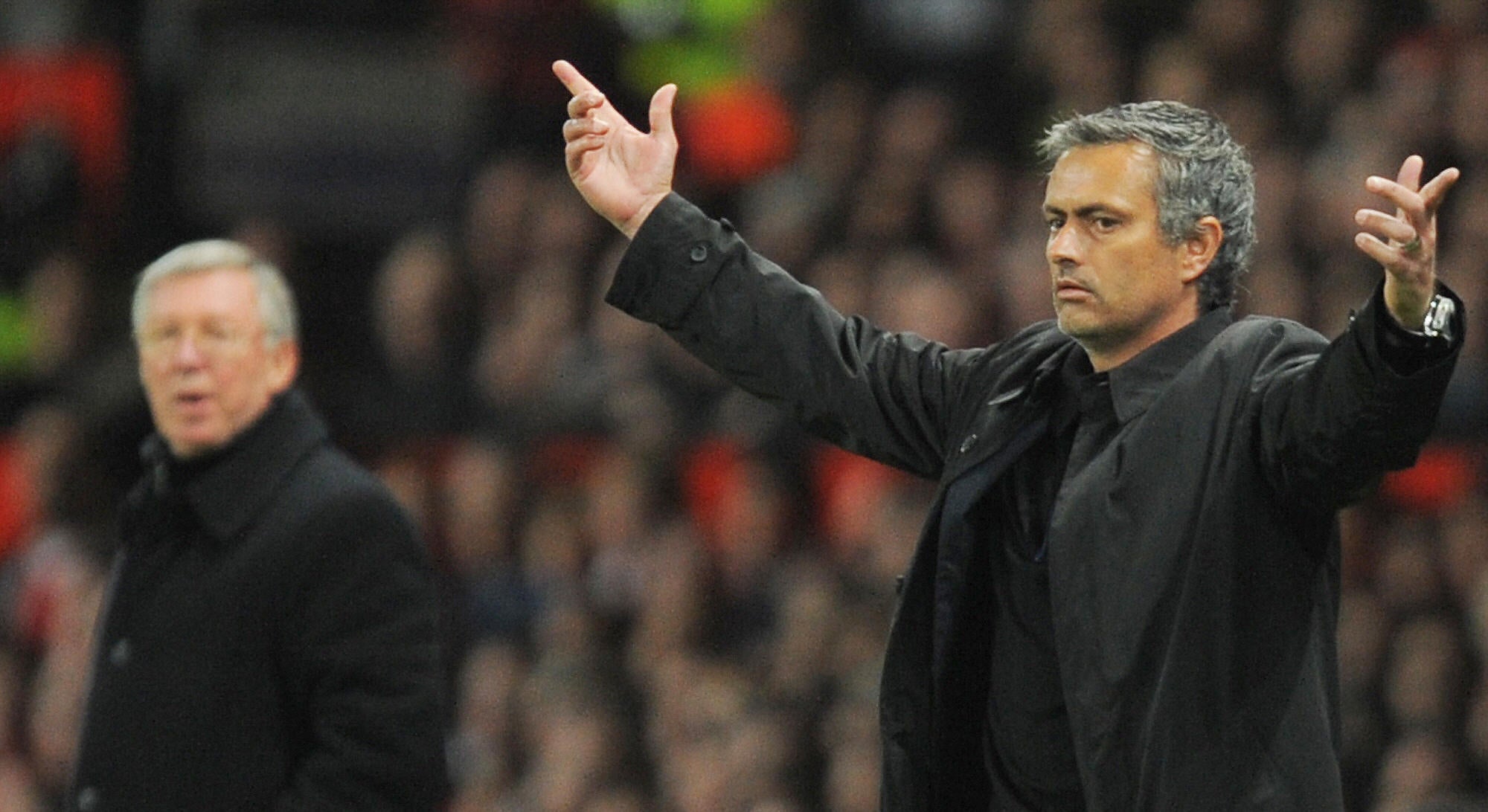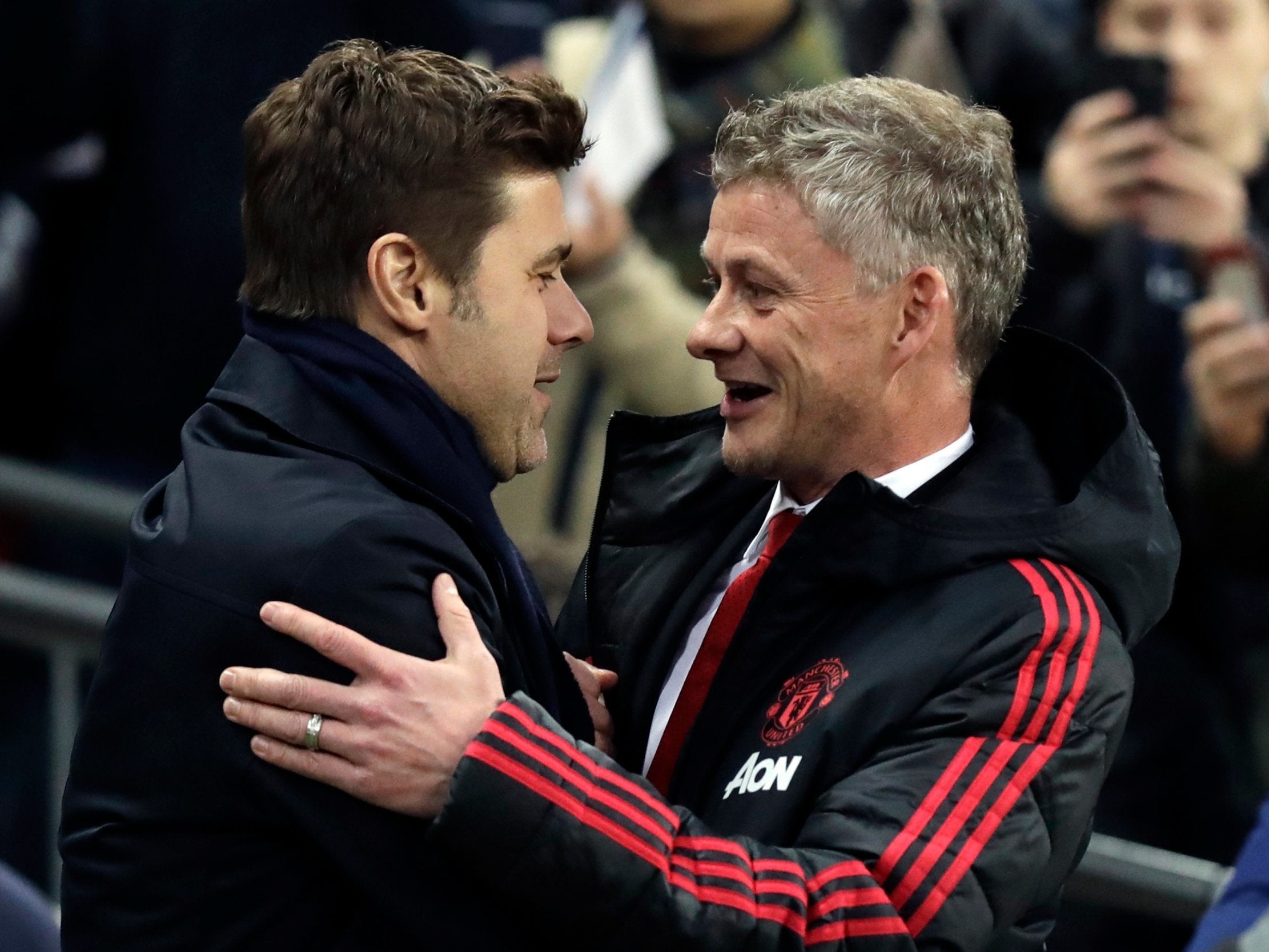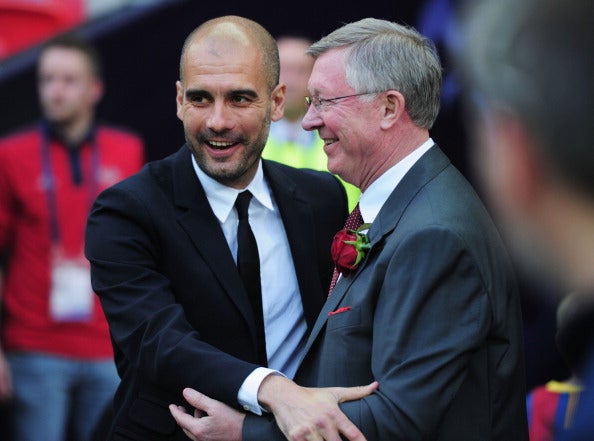At Manchester United, Ole Gunnar Solskjaer's whiffs of Ferguson spark intrigue in his potential after so many false heirs
Rapier-like counter-attacking play brought back memories of a bygone era that doesn't necessarily need to be bygone

Your support helps us to tell the story
From reproductive rights to climate change to Big Tech, The Independent is on the ground when the story is developing. Whether it's investigating the financials of Elon Musk's pro-Trump PAC or producing our latest documentary, 'The A Word', which shines a light on the American women fighting for reproductive rights, we know how important it is to parse out the facts from the messaging.
At such a critical moment in US history, we need reporters on the ground. Your donation allows us to keep sending journalists to speak to both sides of the story.
The Independent is trusted by Americans across the entire political spectrum. And unlike many other quality news outlets, we choose not to lock Americans out of our reporting and analysis with paywalls. We believe quality journalism should be available to everyone, paid for by those who can afford it.
Your support makes all the difference.What better way to bring back the glory days than to bring back the man responsible for the glory days?
Sir Alex Ferguson played a big part in bringing Ole Gunnar Solskjaer back to Old Trafford as a coach - first in 2008 as reserves boss, then as interim manager in December.
And in return Solskjaer is increasingly leaning on the Scot for advice on management, something that he hasn't really kept a secret.
While many expected the Manchester United hierarchy to take the club in a bold new direction next summer by hiring a director of football and possibly Mauricio Pochettino, a little bit of Back to the Future is helping the side progress on the field by harking back to some of the staples of the Fergie era.
There was a thought - when United made the bold, Hollywood move of bringing in Jose Mourinho as boss - that the Portuguese would succeed at Old Trafford because he was the closest manager in persona to Sir Alex, the man whose generation-defining success consecutive managers had abjectly, but perhaps predictably, failed to replicate.

The logic wasn’t necessarily completely flawed, though we know all too well how that particular chapter ended.
Mourinho’s fondness for a diversionary media strategy, presidential approach to management and ability to whip supporters and detractors into a frenzy might only have been rivalled by Ferguson not just in Premier League history but in modern European football. Of course, what United hadn’t banked on was the waning of Mourinho’s powers, his aura of invincibility irreparably damaged by what Antonio Conte would cuttingly label the ‘Mourinho season’ at Chelsea. Indeed, the fact that Conte felt bold enough to fire such a poison-tipped dart at his predecessor speaks to how other coaches were no longer fearful of taking on the Portuguese in the media, as many had been after his first spell in west London.
The way everything fell apart in his final Stamford Bridge campaign was written off by United as a freak occurrence, a spiral of destruction that began with the Eva Carneiro incident at the season’s beginning and spun wildly out of control until Mourinho’s tornado of defeats and divisiveness was halted in its tracks by an abrupt sacking in December 2015. At United there was no such car-crash meltdown really, just an underperforming team getting worse and an old dog finding his catalogue of tricks were outdated.
Mourinho turned out to have much less in common with Ferguson, his supposed spiritual predecessor as United boss, than first thought.
Indeed, being abrasive and knowing how to play the media only works when you can back it up with results. At Real Madrid, Mourinho similarly found that trophies and winning are the only way to make yourself invincible. Creating a synthetic aura of intocability can only last so long, and while Pep Guardiola conceded during the bitterest days of the rivalry between Madrid and his Barcelona that Mourinho was ‘the f**** boss’ in the press room, ultimately Guardiola was the boss where it mattered, on the field.
What proved to be Mourinho’s undoing at United began on the pitch but spread like the virus he accused Paul Pogba of being, infecting off-field relationships and eventually making the situation at the club so toxic that he had to go. Insiders already speak of a different, chirpier mood with Ole Gunnar Solskjaer on board, looking so young that he might as well be an intern and with a job title and contract that doesn’t do too much to differentiate him from one.
Solskjaer’s playing style, though, differentiates himself enormously from his predecessor.

A far-from-vintage display against Tottenham on Sunday mightn’t be the time to laud the Norwegian’s improvements to this side, and by now we have seen enough data to suggest that the ‘new manager bounce’ is often simply regression to the mean - results that one might’ve expected anyway with some minor tweaks and a little luck turning back in your favour.
Yet in Solskjaer’s first true test as United boss, playing another team chasing trophies and the Champions League, he set out his side much as Ferguson used to in these sorts of clashes. It was a team that looked to frustrate defensively but then counter with speed. Ferguson’s United doesn’t get lauded for its utterly dominant football in the way 2008-2011 Barcelona do, but United’s team has a ferocious counter-attacking threat that should shred even the best-organised of teams. When you think of many of United’s most famous goals of the 90s and 2000s, they tend to be speedy, swashbuckling football so destabilising, like a quick-jab combo, that it catches opponents completely off-balance and more often than not leaves them floored. Watch an episode of Premier League Years and you’ll invariably catch a red wave sweeping upfield to score season-defining goals. Perhaps this time it’s Ryan Giggs scything through Everton to a soundtrack of B*Witched, or tune in next time and you’ll catch Nani and Cristiano Ronaldo carving a scarlet pattern through Fulham just as Justin Timberlake brings Sexyback.

The blistering pace of those counter-attacks is something that Solskjaer, a coach whose first instinct - perhaps unsurprisingly - is to attack, appears keen to reincorporate. United’s offensive play under Mourinho was so staid and predictable as to be, well, offensive. They were dull and unadventurous to watch, something that is more of an affront to many fans of the club than losing. Ferguson, fortunately, managed to mesh winning with a brand of football that had opponents semi-petrified to venture out of their own half for fear of reprisals - wingers and forwards overloading and overpowering an undermanned defence. Plenty who played under him, including Roy Keane and Paul Scholes, have spoken of often feeling like the game was psychologically won in the tunnel.
Solskjaer doesn’t look like he will have the league quaking pre-match anytime soon, at least not to that extent, but the way he set his team out against Spurs had faint whiffs of Fergie.
According to Opta, United had as many ‘fast breaks’ before half-time against Tottenham as they had managed in the first 17 full matches of the season under Mourinho. Opta define 'fast breaks' as an "attempt created after the defensive quickly turn defence into attack winning the ball in their own half (counter attack)."
That stat alone shows the revolution that has taken place in the United attack, even if David De Gea’s stand-out display covered up the fact that this backline remains possibly the least convincing of any top-six club.
Having enjoyed an easy slate in his first few games, Spurs were always going to be more difficult to face and if they had just kept onside for Harry Kane’s first-half goal the entire script would have played out differently. His injury, and that of midfield engine Moussa Sissoko, also helped tilt a knife-edge game in United’s favour.
But after showing that he could coach his team to impressive victories over some of the Premier League’s weaker sides, Solskjaer showed that he has a strategy for taking on the true contenders too. Tottenham can control games but the Norwegian was prepared for that. His side stuck it out when Spurs were on top and waited for their chance to spring forward, utilising the speed and verve of Marcus Rashford, Jesse Lingard and Anthony Martial to probe and provoke.
As Jonathan Liew so brilliantly wrote in these pages, United are no longer afraid to err . Instead they are unleashing their speeding hounds in attack, releasing their towering engine room, Paul Pogba, from his shackles and encouraging him to create, to find, to search.
Solskjaer - along with another member of Ferguson’s coaching tree, Mike Phelan - has brought this to the table. It’s not revolutionary as an idea, but it has been for how this team functions.
Football has inevitably changed a bit from when Ferguson’s teams would ferociously attack with speed from their own half, searing vertically down the field, and many of those ‘fast breaks’ seen against Spurs now occur after winning the ball back by pressing higher up the field. That is how United scored their goal, Lingard - let off the leash - hounding and pursuing the ball in a way we knew he could having watched him at the World Cup but wondered if we would ever see again following the Mourinho debacle.

After thinking that it was a Scot, then a Dutchman, then a Portuguese who might be able to bring back the success and swagger of the Ferguson era, perhaps it could be a Norwegian whose managerial CV is not even a tenth as impressive who surprises us all and gets there.
The competition is greater now, undoubtedly, and Solskjaer still has many questions to answer, but having beaten the coach who would cost the Glazer family some £45m or so to prise away from north London, the intern has cleared his first significant hurdle on an unlikely path to the permanent job.
Solskjaer may currently be only Ferguson lite... and he may prove never be more than that. But given the cost of Pochettino, and the counter-attacking nostalgia invoked at Wembley, the cheaper option may not be as bad as some think.
Helpfully for Ed Woodward, the more success Solskjaer enjoys, the more it will eventually smoke out ‘Plan A’ Pochettino’s true intentions - possibly forcing him to tip his hand and ditch playing hard to get.
Join our commenting forum
Join thought-provoking conversations, follow other Independent readers and see their replies
Comments